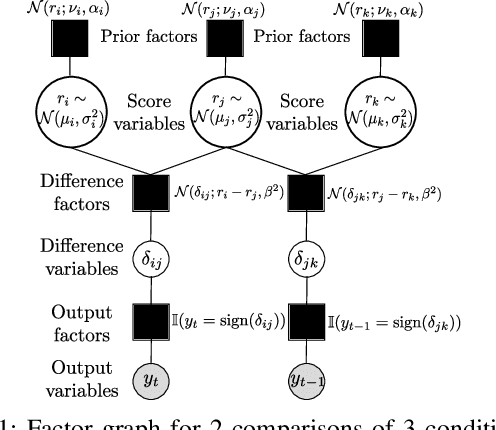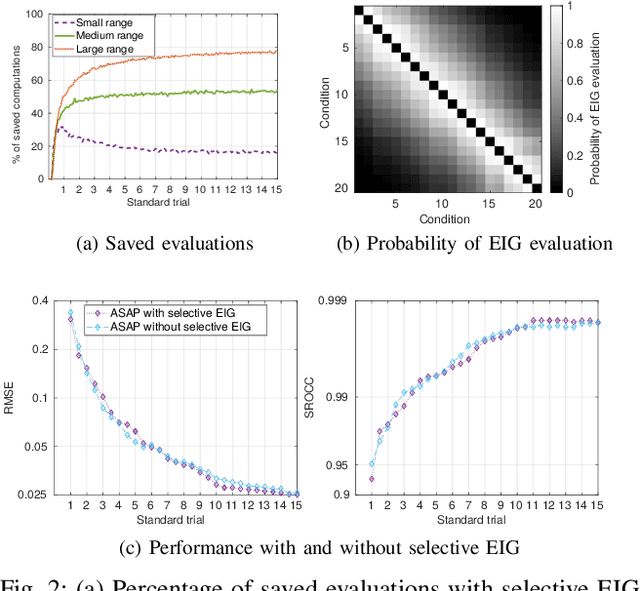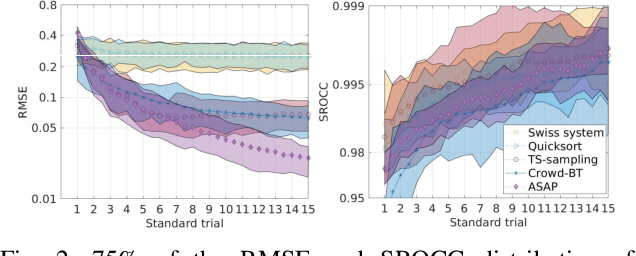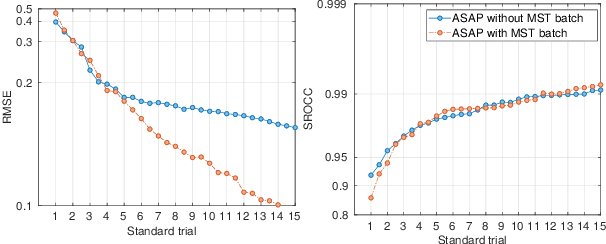Active Sampling for Pairwise Comparisons via Approximate Message Passing and Information Gain Maximization
Paper and Code
Apr 12, 2020



Pairwise comparison data arise in many domains with subjective assessment experiments, for example in image and video quality assessment. In these experiments observers are asked to express a preference between two conditions. However, many pairwise comparison protocols require a large number of comparisons to infer accurate scores, which may be unfeasible when each comparison is time-consuming (e.g. videos) or expensive (e.g. medical imaging). This motivates the use of an active sampling algorithm that chooses only the most informative pairs for comparison. In this paper we propose ASAP, an active sampling algorithm based on approximate message passing and expected information gain maximization. Unlike most existing methods, which rely on partial updates of the posterior distribution, we are able to perform full updates and therefore much improve the accuracy of the inferred scores. The algorithm relies on three techniques for reducing computational cost: inference based on approximate message passing, selective evaluations of the information gain, and selecting pairs in a batch that forms a minimum spanning tree of the inverse of information gain. We demonstrate, with real and synthetic data, that ASAP offers the highest accuracy of inferred scores compared to the existing methods. We also provide an open-source GPU implementation of ASAP for large-scale experiments.
 Add to Chrome
Add to Chrome Add to Firefox
Add to Firefox Add to Edge
Add to Edge